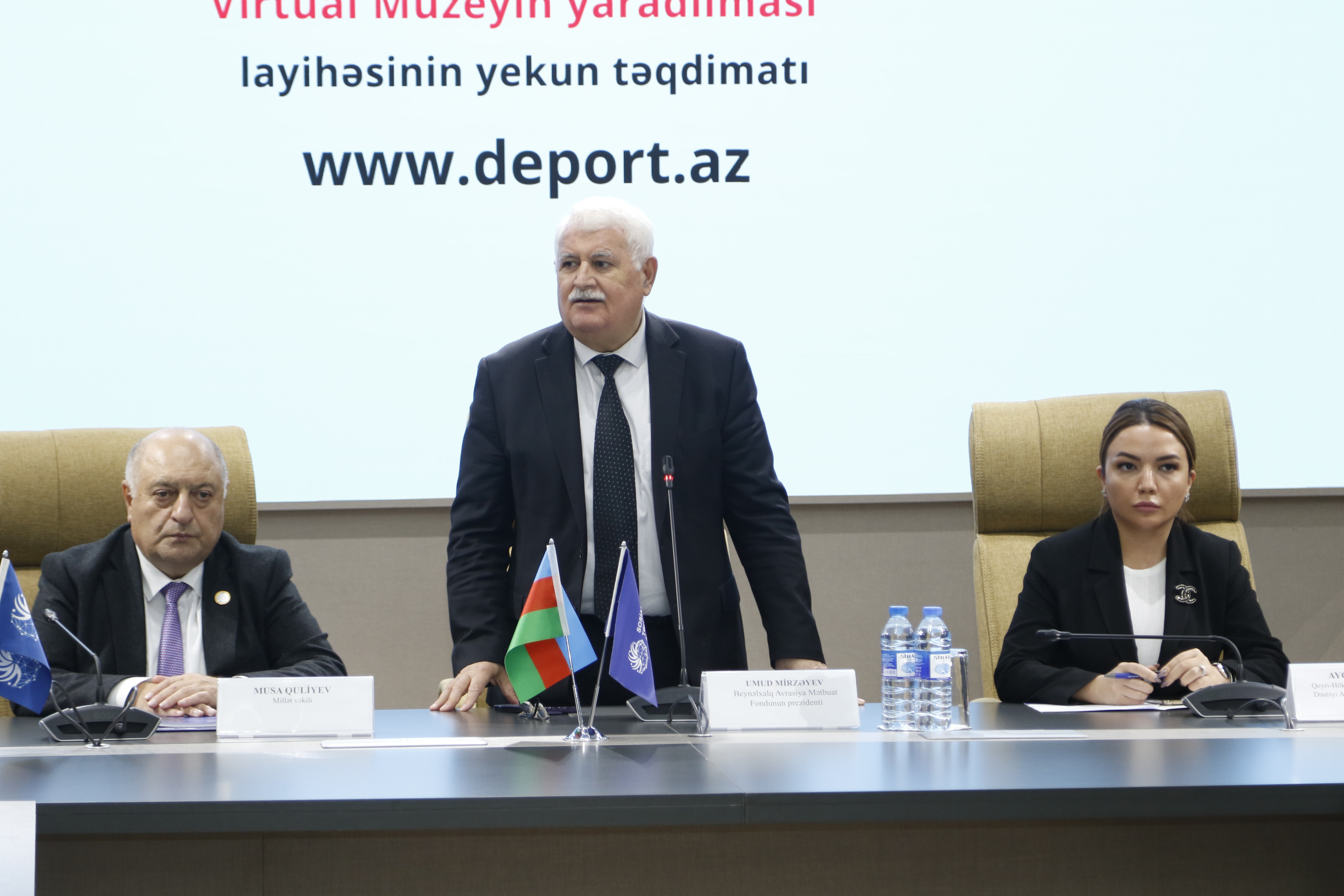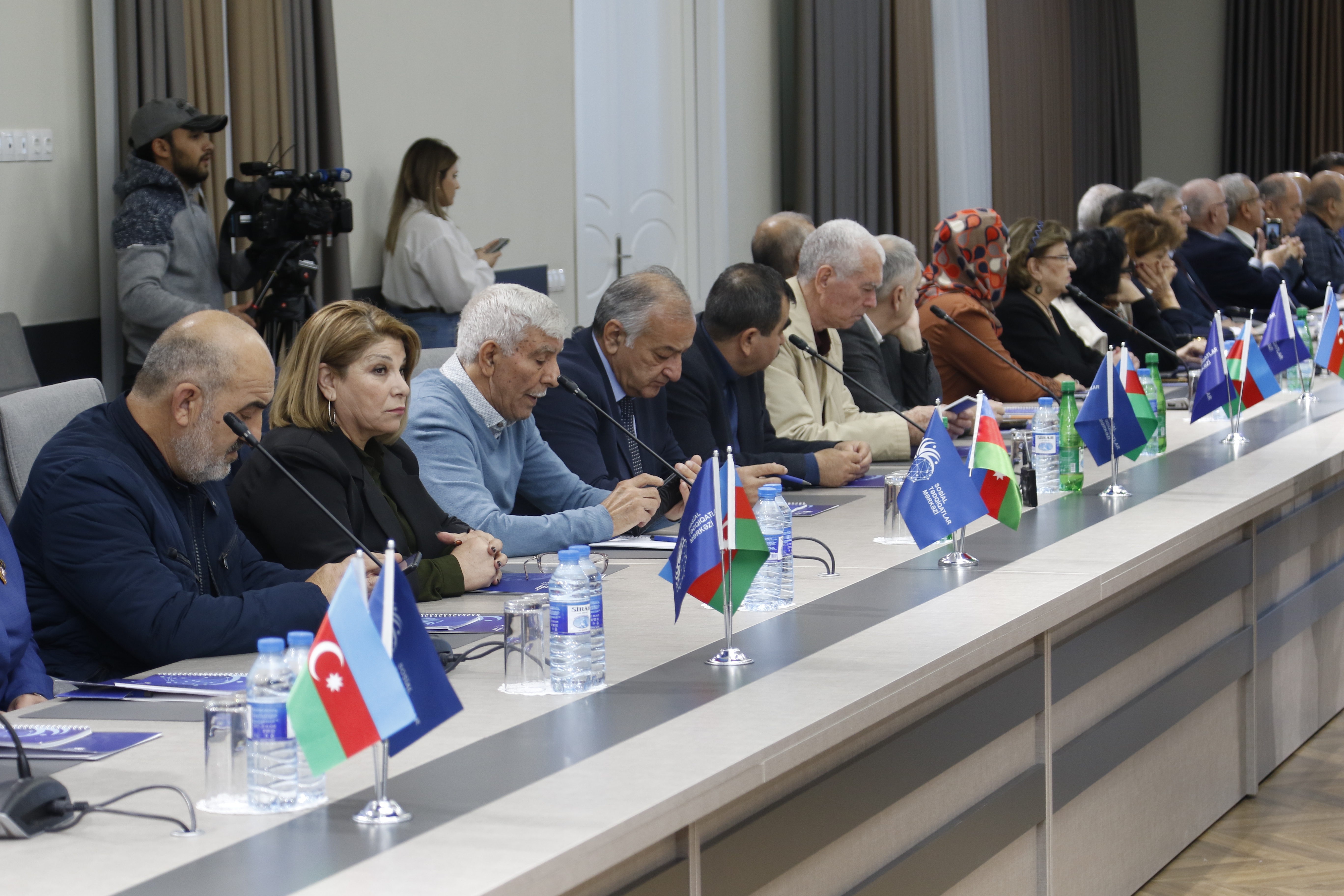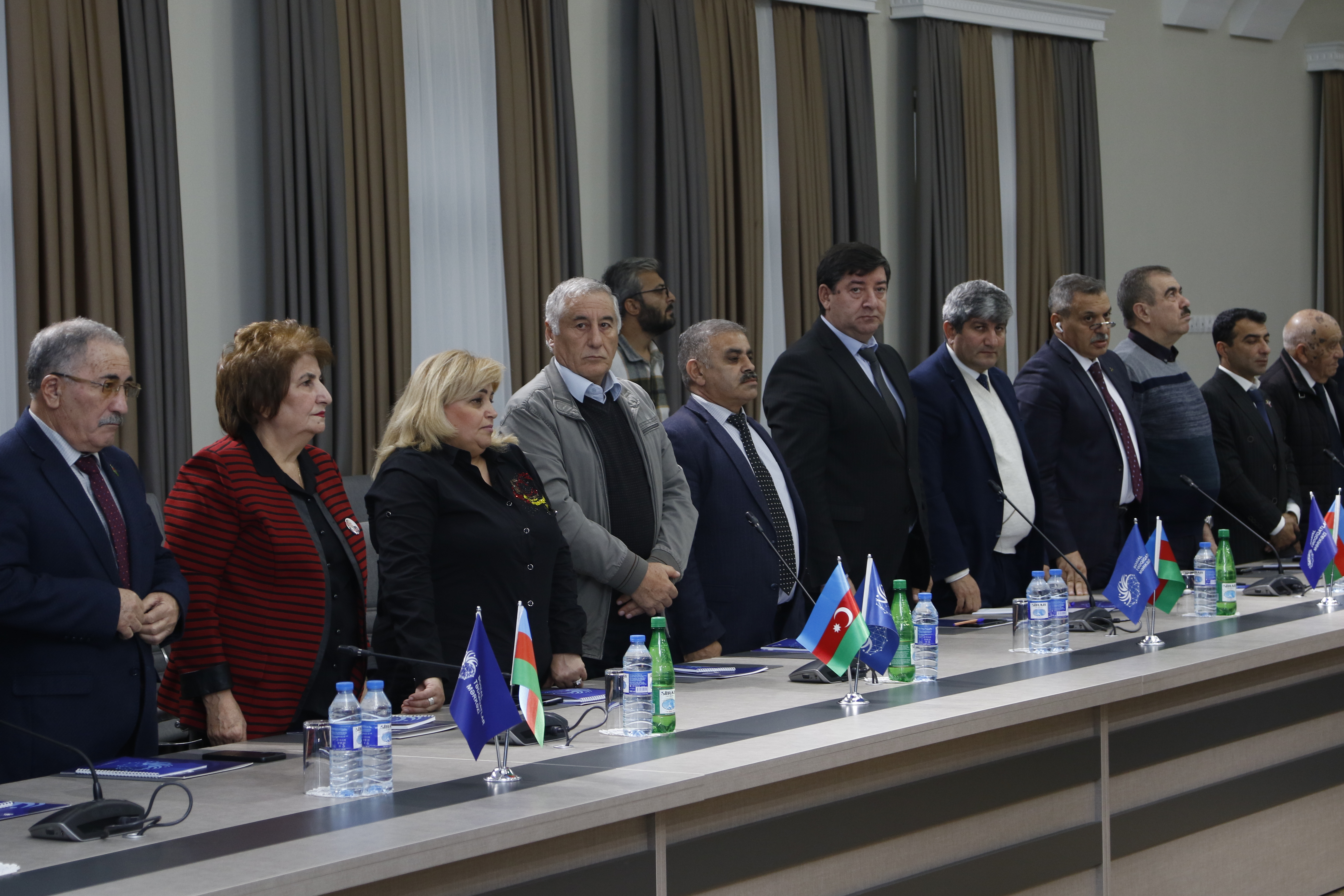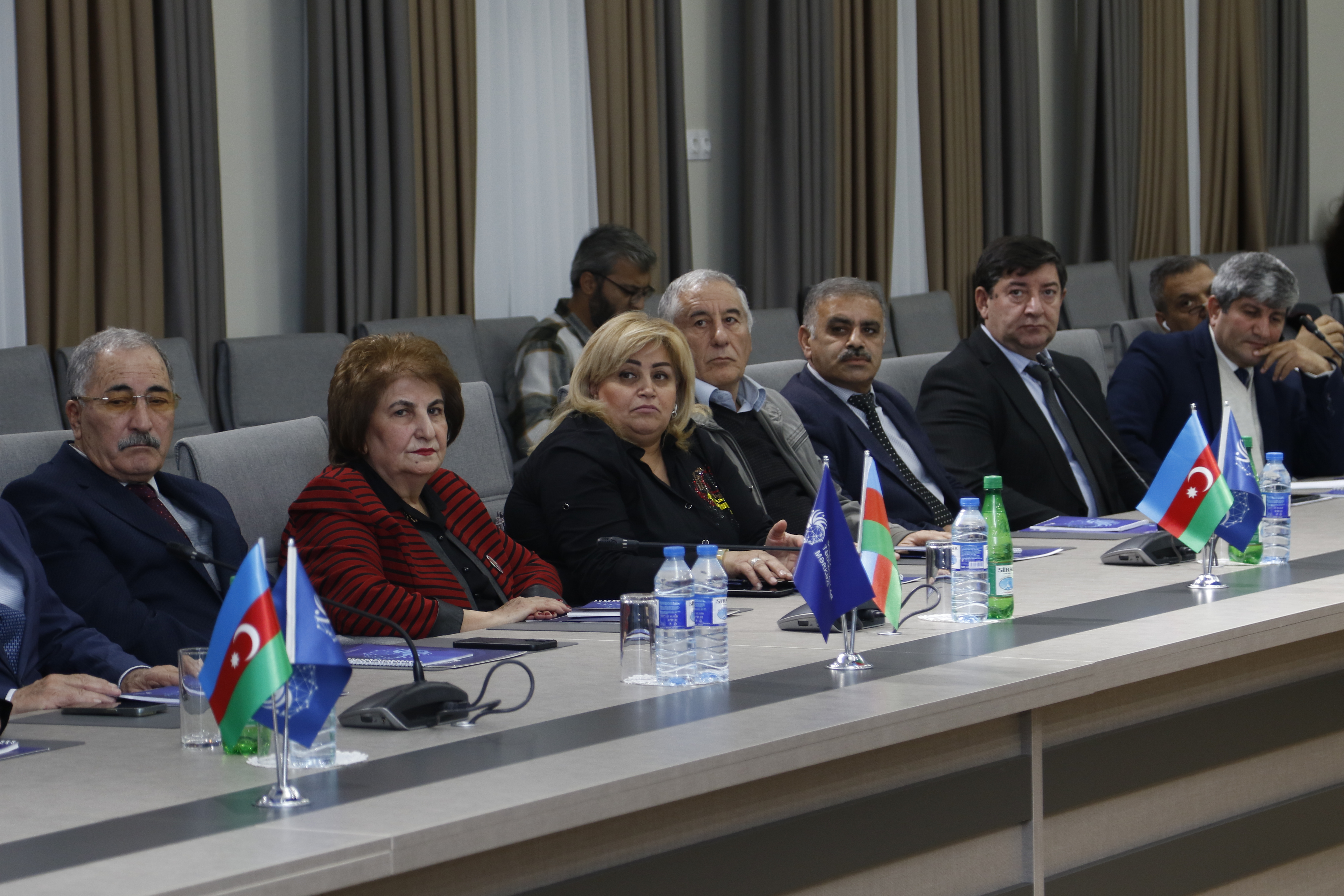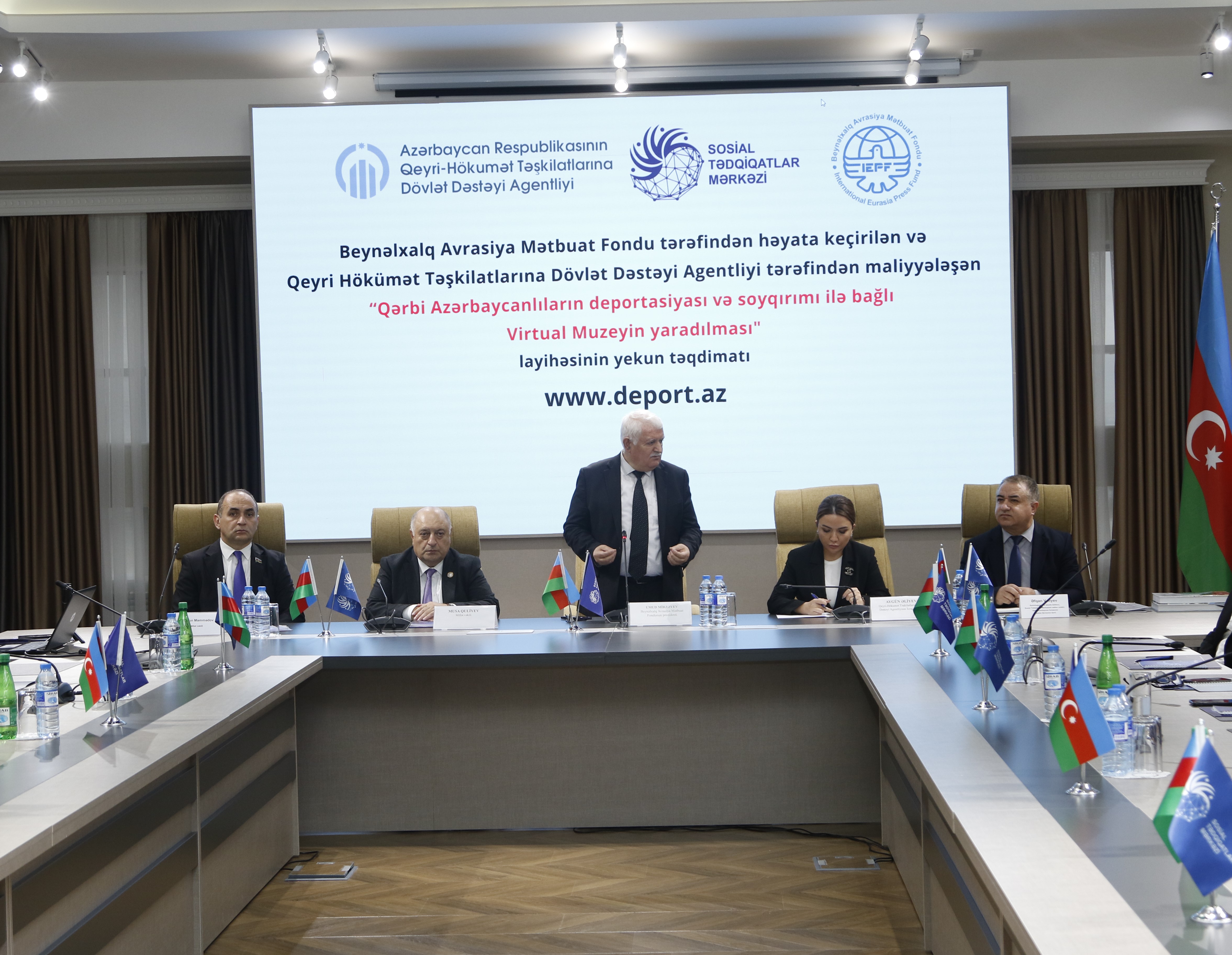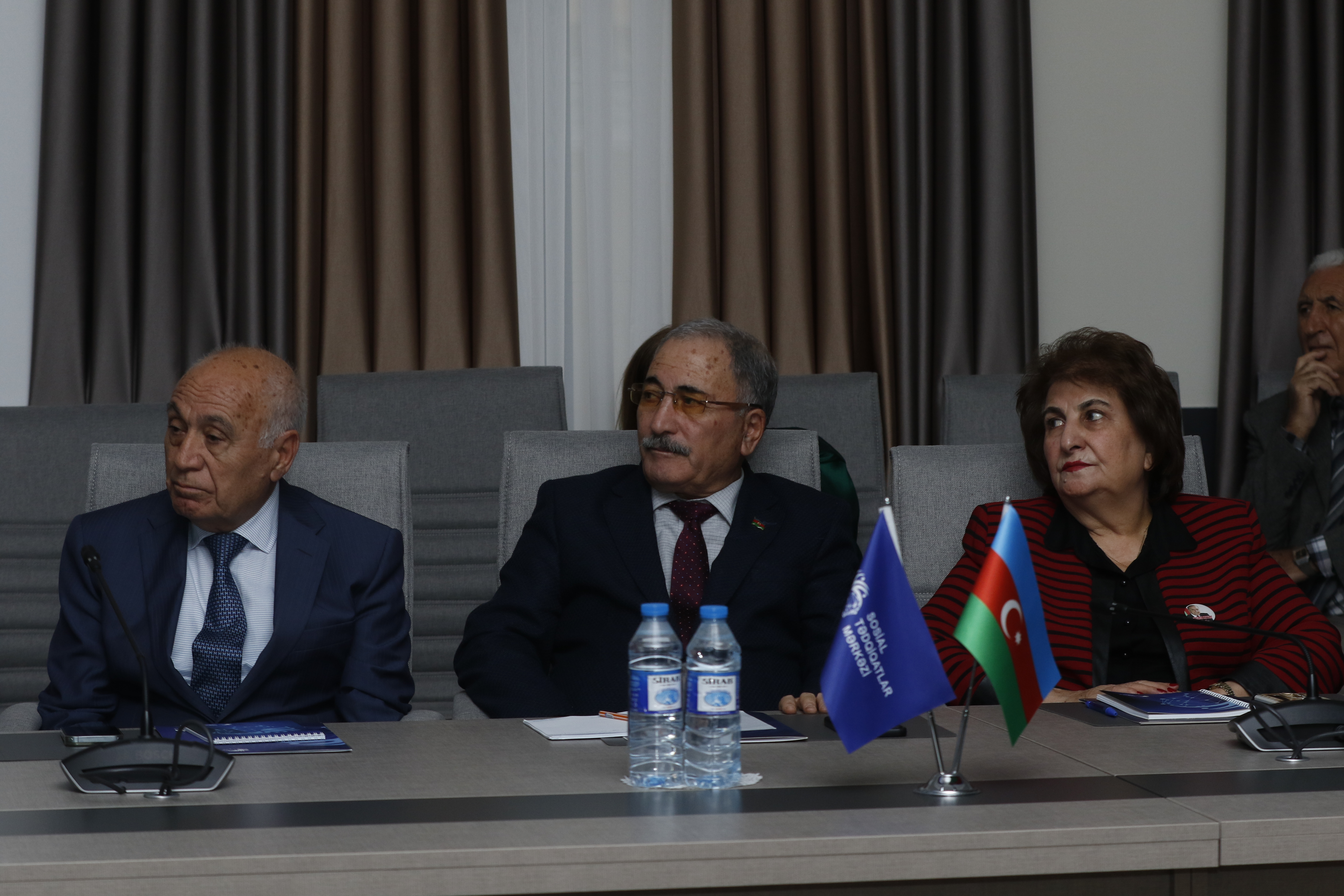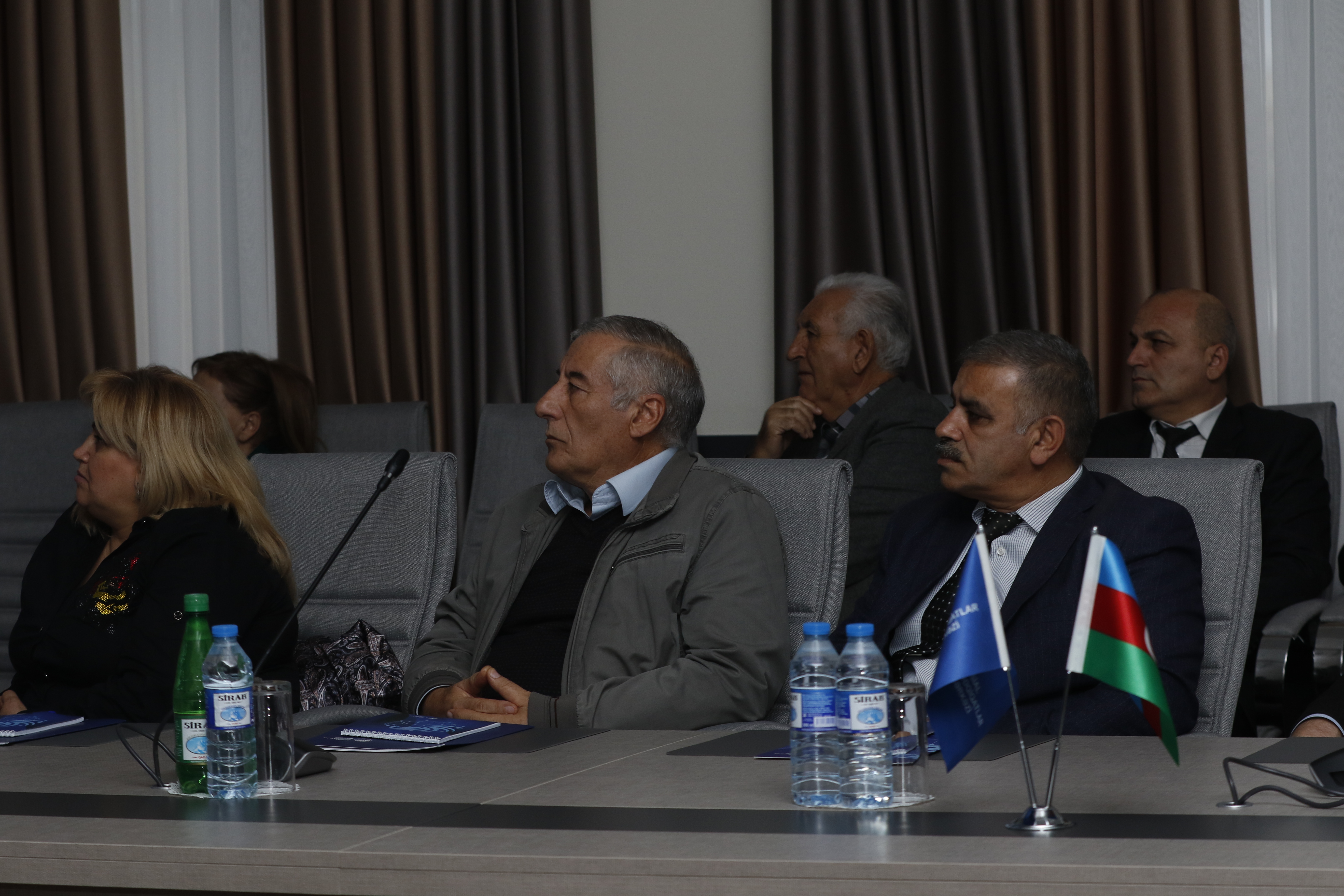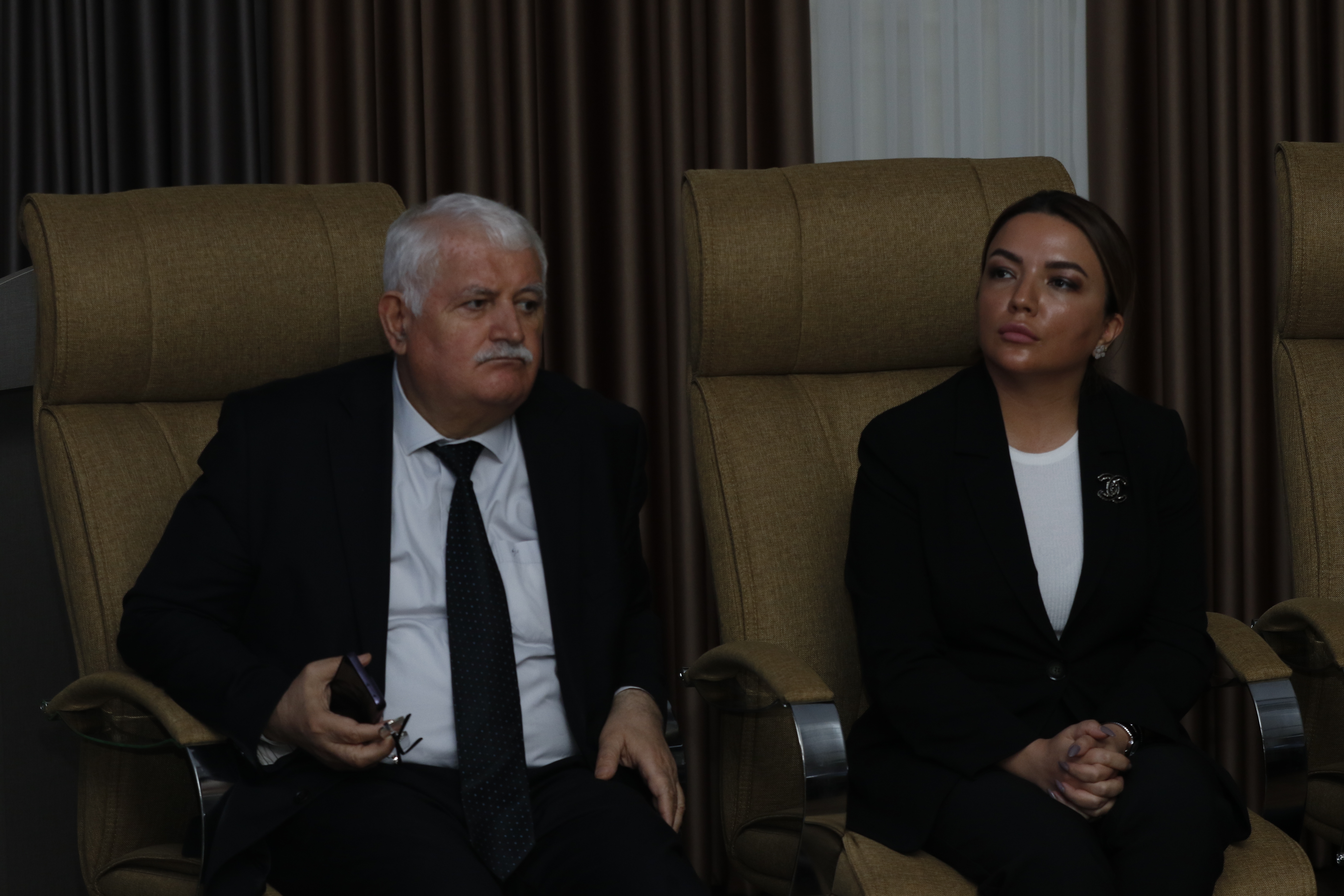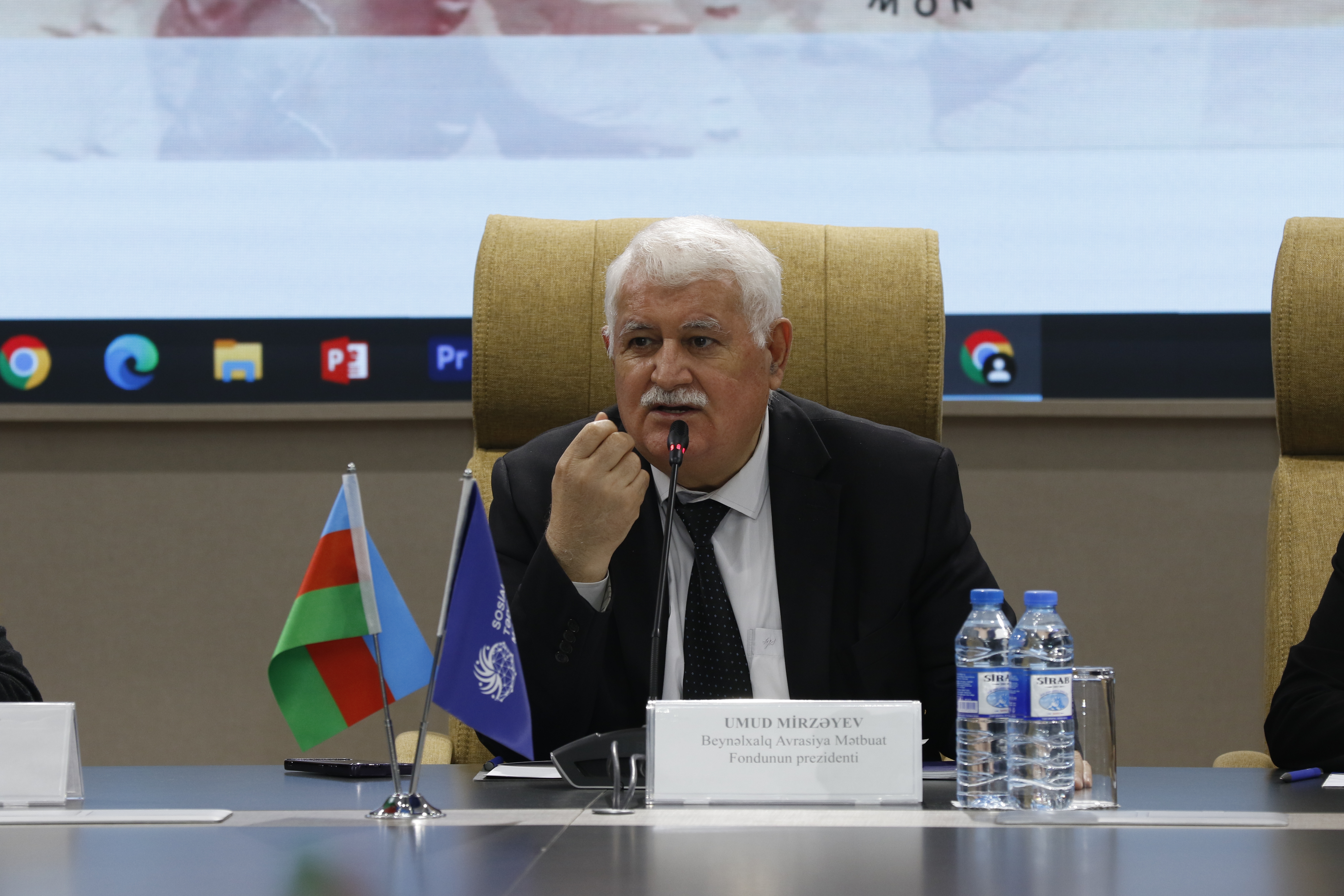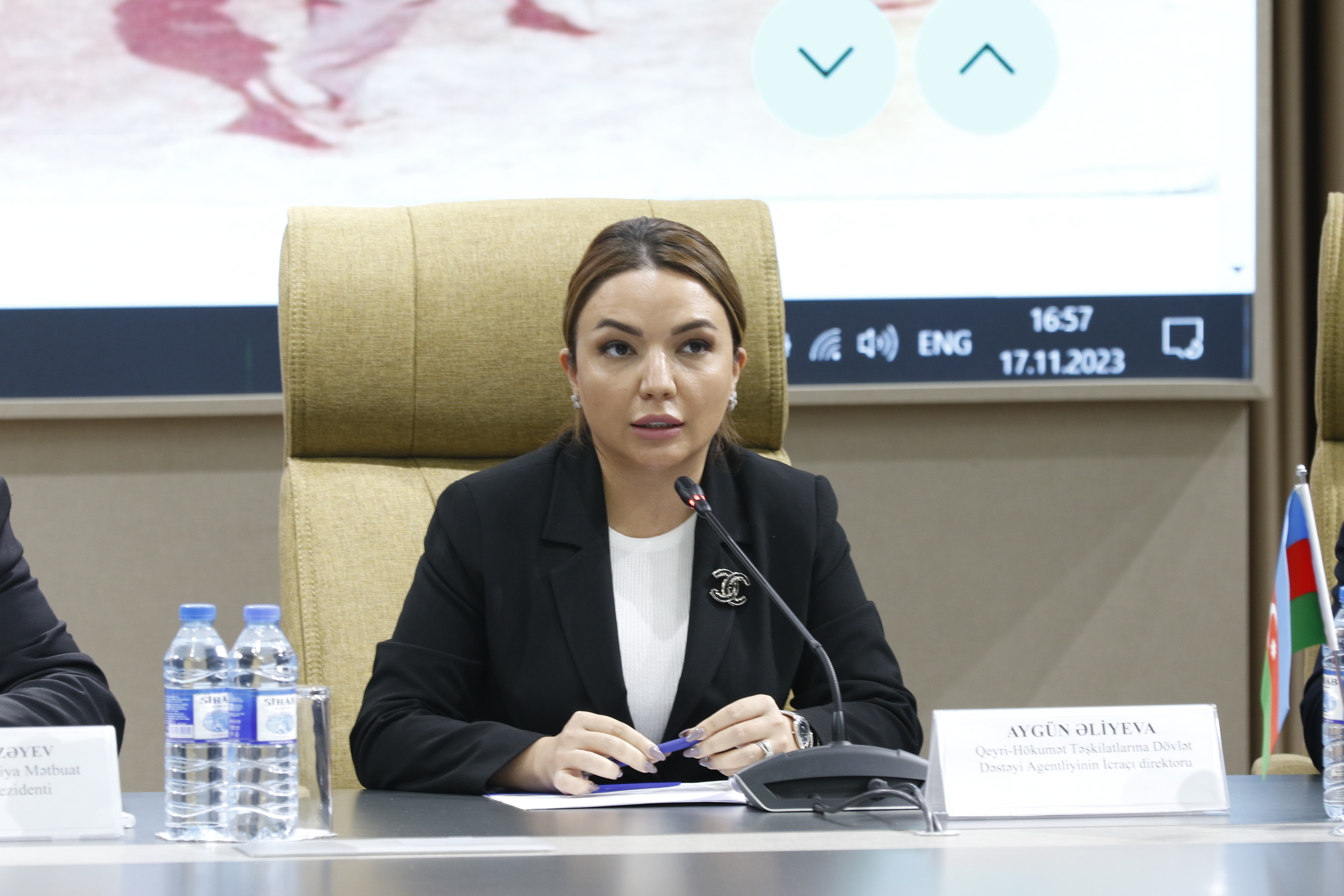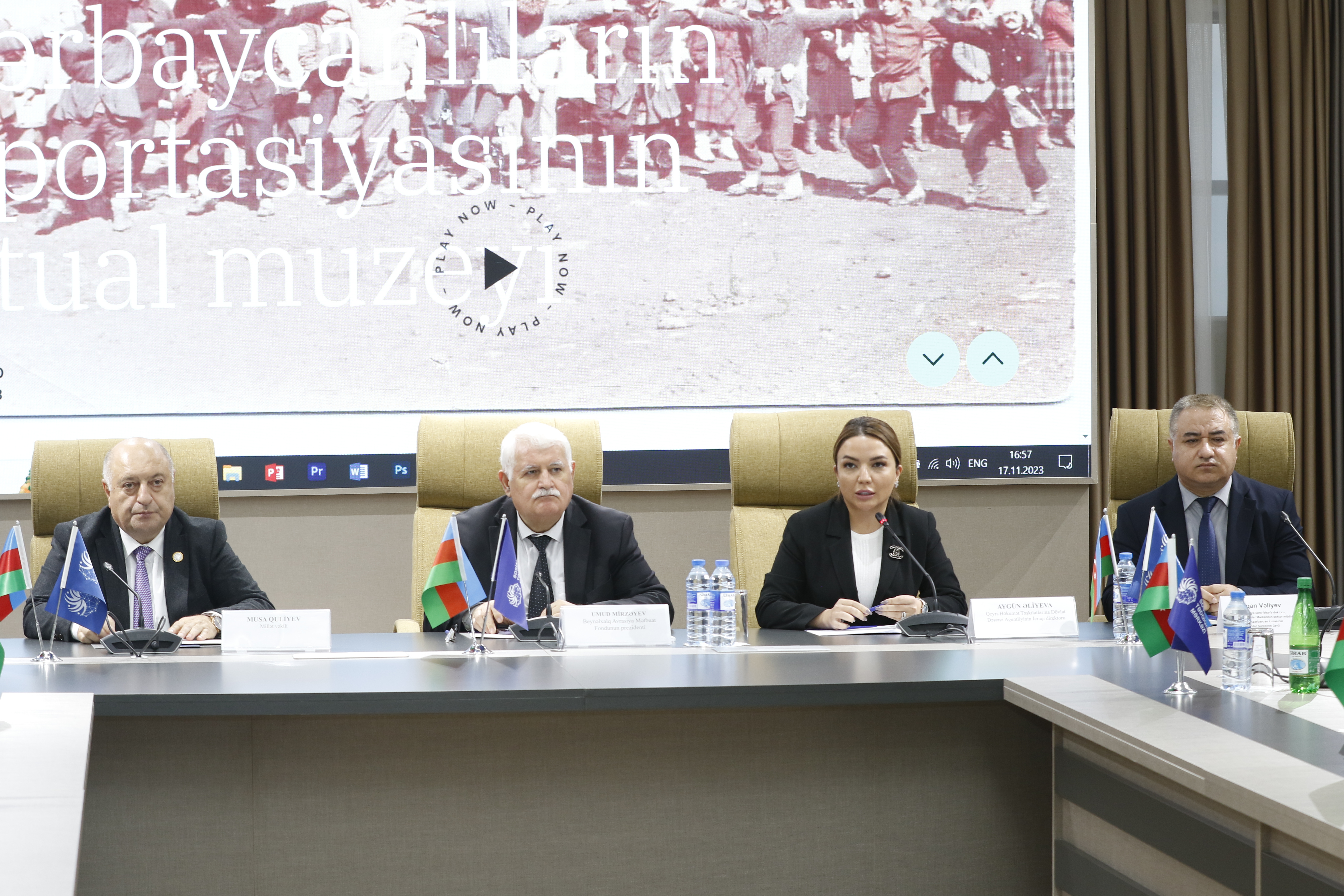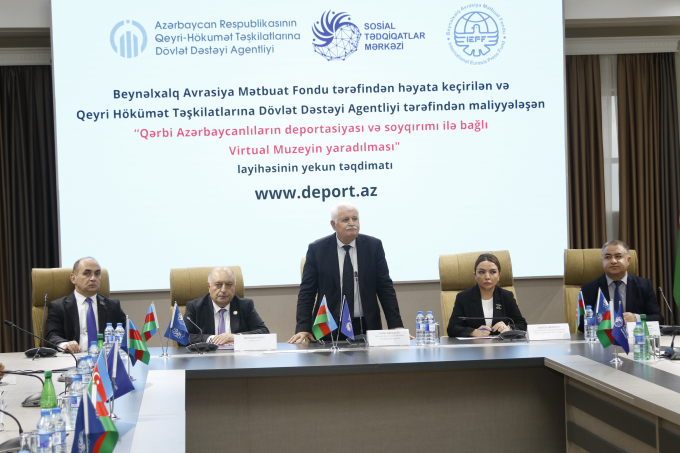Today, the International Eurasia Press Fund, in collaboration with the State Support Agency for Non-Governmental Organizations of the Republic of Azerbaijan, is hosting the concluding presentation event for the project "Creating a Virtual Museum Related to the Deportation and Genocide of Western Azerbaijanis."
The event held at the Social Research Center, is attended by prominent figures, including Aygun Aliyeva, Executive Director of the State Support Agency, MPs Musa Guliyev and Jeyhun Mammadov, İEPF President Umud Mirzayev, Afgan Valiyev, Sector Manager of the Social Research Center, intellectuals, members of the West Azerbaijan Community, and media representatives.
The proceedings began with an opening speech by Umud Mirzayev, who paid tribute to the Azerbaijani soldiers who lost their lives in the Second Karabakh War, observing a one-minute silence.
Umud Mirzayev provided an overview of the project, stating, "It is quite a serious project. After watching the film, you will know more about the project."
Following the opening speeches, the documentary film "Deportation - through the Eyes of Witnesses," produced under the project, was screened. Subsequently, the presentation of the "deport.az" website for the virtual museum took place, accompanied by detailed information about the site.
The project involved interviews with 80 individuals who were victims of deportation incidents, including live witnesses, with an additional 25 participants in a survey. In total, around 150 Western Azerbaijanis contributed to the formation of the virtual museum, sharing photos, graduate albums, and documents from that period. The museum currently houses over 300 photos and about 200 documents.
The primary objective of the project is to spotlight the genocide and crimes suffered by Western Azerbaijanis due to deportation policies on an international scale through the Virtual Museum. By broadcasting the impactful life stories of the victims, the project aims to bring attention to the pain they experienced. Additionally, the international exposure of these crimes is expected to bolster efforts to restore the rights of those affected. The next phase of the project involves engaging more participants in interviews, expanding the collection of materials, and fostering collaborations with other virtual museums.
